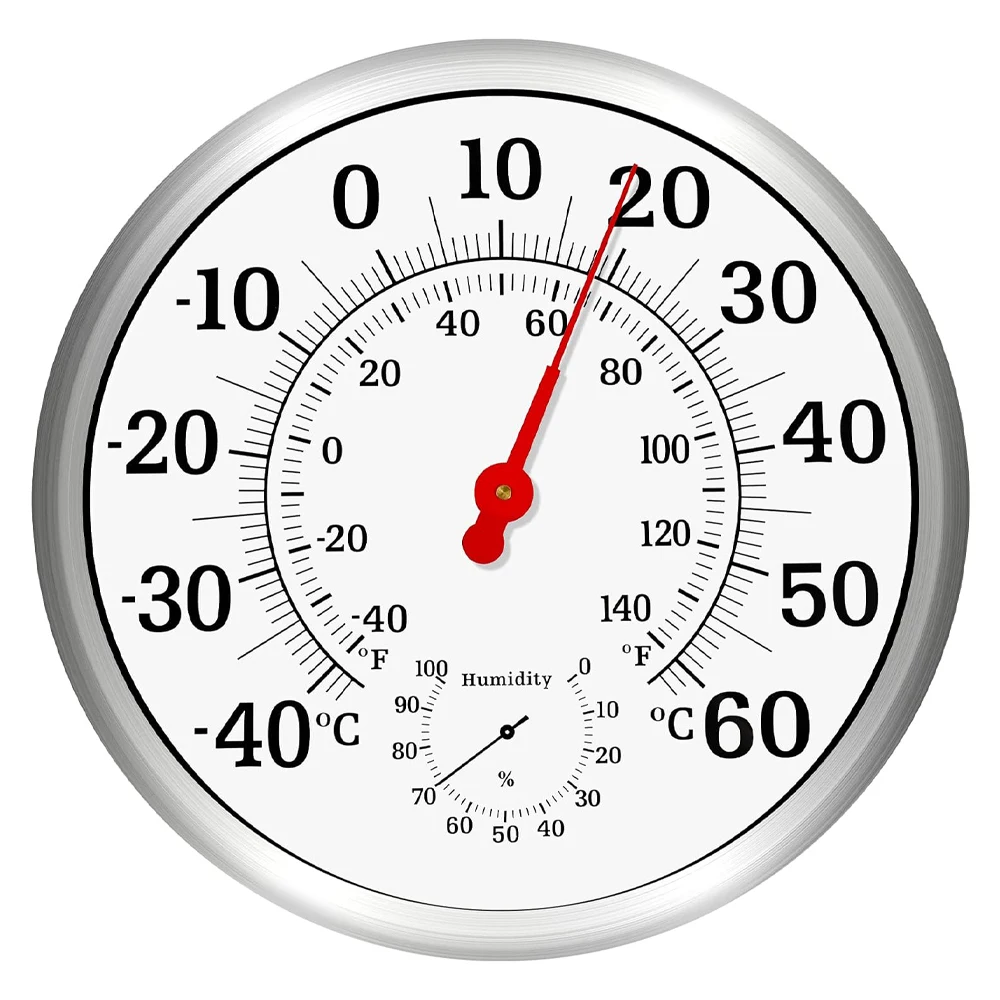Introduction
Every home is a reflection of its inhabitants, a canvas that holds stories, experiences, and personal moments. One interesting way to enhance this canvas is through indoor decorative thermometers. More than just functional tools, they bring a unique charm to your home while serving the essential purpose of monitoring temperatures.
In this article, we’ll delve into the various types of indoor decorative thermometers, their benefits, how to choose the right one, and share some personal experiences to guide your selection. So, whether you’re an interior design enthusiast or simply seeking a practical home accessory, keep reading!
What is an Indoor Decorative Thermometer?
An indoor decorative thermometer is a device designed to measure temperature in your home environment while also enhancing your decor. Available in various styles — from vintage to modern — these thermometers can seamlessly blend into any room’s aesthetic. They often serve dual purposes; displaying temperature and adding a touch of elegance or personality to your space.
Types of Indoor Decorative Thermometers
1. Analog Thermometers
Analog thermometers use traditional mechanisms to measure temperature. They typically feature a dial gauge and can be made from wood, metal, or plastic. Their vintage appeal makes them a popular choice for rustic or classic interior designs.
2. Digital Thermometers
For those who prefer modern technology, digital thermometers offer precise readings with easy-to-read displays. Some models feature backlighting, making them suitable for low-light environments.
3. Decorative Wall Thermometers
These thermometers not only tell the temperature but also act as wall art. They come in various designs, shapes, and sizes, allowing you to choose one that complements your existing decor.

4. Smart Thermometers
Smart indoor thermometers connect to your Wi-Fi or Bluetooth, allowing you to monitor your home’s temperature via smartphone apps. They can also integrate with smart home systems for enhanced control.
Benefits of Using Indoor Decorative Thermometers
- Improved Aesthetics: A decorative thermometer can add character to your decor.
- Functionality: It provides real-time data on the temperature, helping you maintain a comfortable indoor climate.
- Conversation Starter: Unique designs can intrigue guests and spark conversations.
- Encouragement for Home Care: Monitoring temperature can lead to better home maintenance and energy efficiency.

Choosing the Right Indoor Decorative Thermometer
When selecting the perfect thermometer for your home, consider the following factors:
1. Style and Design
Choose a style that complements your existing decor. Whether it’s vintage, modern, or rustic, ensure that it aligns with your home’s aesthetic.

2. Accuracy and Functionality
Ensure the thermometer you choose provides accurate readings. Read reviews and check specifications regarding its accuracy.
3. Size and Placement
Consider where you will place the thermometer. Larger models can be focal points, whereas smaller ones can fit into tighter spaces.

4. Budget
Indoor decorative thermometers range widely in price. Establish a budget beforehand to avoid overspending.
5. Additional Features
Some thermometers come with features like humidity readings or smart connectivity. Consider these features based on your needs.

Personal Experience: My Journey with Indoor Decorative Thermometers
When I first moved into my apartment, I wanted to create a cozy and inviting atmosphere. After searching for decor pieces, I stumbled upon a vintage-style indoor thermometer. This piece not only provided accurate temperature readings but also added a charming touch to my living room.
Over time, I began to appreciate the functionality of having an indoor thermometer. It helped me adjust my heating and cooling systems more effectively, ultimately contributing to a comfortable living space. My guests often complimented the thermometer, which sparked delightful conversations about home decor and temperature management.
Comparison Table: Types of Indoor Decorative Thermometers
| Type | Design | Accuracy | Price Range | Best For |
|---|---|---|---|---|
| Analog | Vintage/Rustic | Good | $10 – $50 | Traditional Decor |
| Digital | Modern | Very Good | $20 – $100 | Tech Enthusiasts |
| Decorative Wall | Artistic | Good | $15 – $70 | Wall Decoration |
| Smart | Futuristic | Excellent | $30 – $150 | Smart Homes |

Pros and Cons of Indoor Decorative Thermometers
Pros
- Enhances the aesthetic appeal of your home.
- Provides useful temperature readings for comfort.
- Can serve as a unique conversation piece.
- Available in various styles and functionalities.

Cons
- Some decorative models may sacrifice accuracy for style.
- Smart models may require setup and maintenance.
- Cost can vary significantly based on design and features.
Care and Maintenance Tips for Indoor Decorative Thermometers
To ensure your thermometer remains functional and aesthetically pleasing, consider the following care tips:
1. Regular Cleaning
Dust and dirt may accumulate on the surface. Use a soft cloth to clean it regularly.
2. Avoid Direct Sunlight
Positioning the thermometer in direct sunlight may affect its accuracy. Place it where it can receive a balanced amount of light.
3. Check Accuracy Periodically
Make sure to periodically check the accuracy, especially for analog models, which may need recalibration.
FAQs About Indoor Decorative Thermometers
1. Can decorative thermometers be used outdoors?
While some decorative thermometers are designed for indoor use, others can withstand outdoor conditions. Always check the manufacturer’s specifications before using one outdoors.
2. How accurate are digital decorative thermometers?
Digital thermometers tend to be very accurate, often providing readings within a degree or two of actual temperature. Look for high-quality models for the best accuracy.
3. Do indoor thermometers measure humidity as well?
Some indoor decorative thermometers come with built-in hygrometers that measure humidity levels in addition to temperature. This can be beneficial for maintaining indoor comfort.
4. Where’s the best place to hang a wall thermometer?
Hang a wall thermometer in an area that’s representative of the room temperature, avoiding spots near doors, windows, or heating/cooling vents.